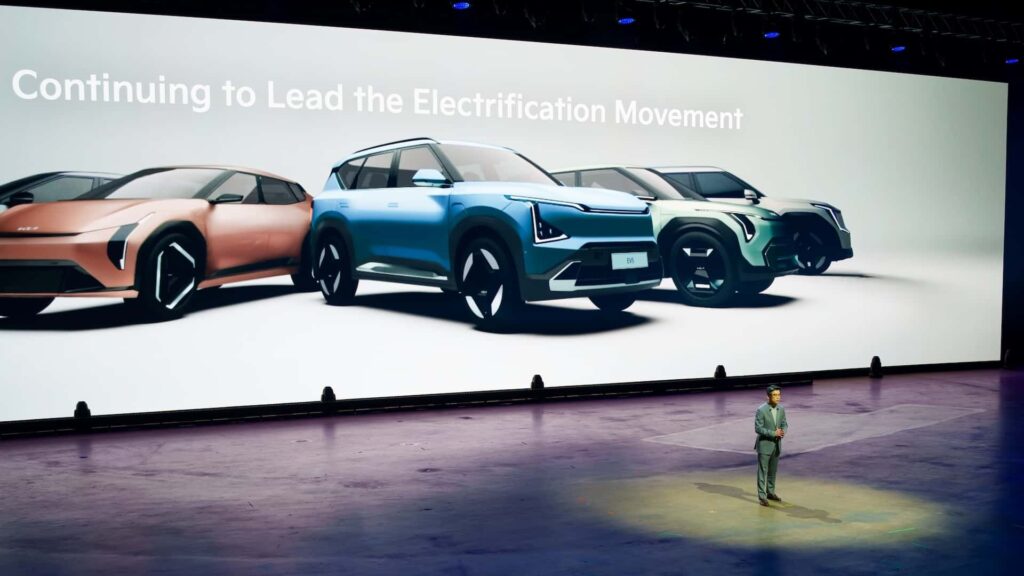Kia recently hosted its EV Day 2025 event in Spain, showcasing a range of new electric vehicles and variants. Amongst the excitement, a common question arose – when will these new models make their way to America? However, Kia officials are facing challenges due to potential U.S. tariffs on vehicles produced outside the country. President Donald Trump has proposed a 25% tariff on all car imports, which could significantly impact the pricing and availability of new models.
Kia’s President and CEO, Ho Sung Song, acknowledged the complexity of the automotive industry in light of these potential tariffs. The company is currently studying various scenarios to navigate this uncertain terrain. The introduction of tariffs could lead to an increase in car prices or even halt the sale of certain models. Building new factories to avoid tariffs is a time-consuming and expensive process, making it difficult for automakers to plan ahead.
The EV sector, in particular, is facing challenges as electric vehicles are still more expensive than traditional gas-powered cars. Without tax credits and incentives, the pricing of EVs becomes a crucial factor. Kia had previously announced its “EVs for All” initiative, which included plans for global expansion of EV and battery factories. However, the future of these plans is uncertain in the face of potential tariffs and regulatory changes.
One of the models unveiled at the event was the compact EV3, which has been launched in South Korea and Europe. While Kia has confirmed its arrival in the U.S. with an attractive price tag of around $35,000, details about production and availability in America are still unclear. Similarly, the Kia EV4 sedan, which was also unveiled at the event, is confirmed for the U.S. market but the timeline for its launch is yet to be determined.
Song emphasized the need for flexibility in production to navigate the current uncertainties. Kia is also exploring hybrid models to diversify its offerings. However, until a firm tariff or regulation is in place, the impact on the company’s operations remains unclear. Despite the challenges, Kia remains committed to delivering quality products at competitive prices for its customers.
In addition to the EV models, Kia also introduced the PV5 commercial vehicle. However, due to the “Chicken Tax” – an old rule that imposes tariffs on foreign vans and trucks – the PV5 may not be headed to America. Instead, Kia is considering launching it in Canada.
While Kia’s EV business in the U.S. may face challenges, the company is optimistic about its prospects in other parts of the world. As Kia navigates through the uncertainties, its focus remains on delivering high-quality products to customers. The future of Kia’s EV lineup may be uncertain, but the company is determined to adapt to the changing landscape of the automotive industry.

